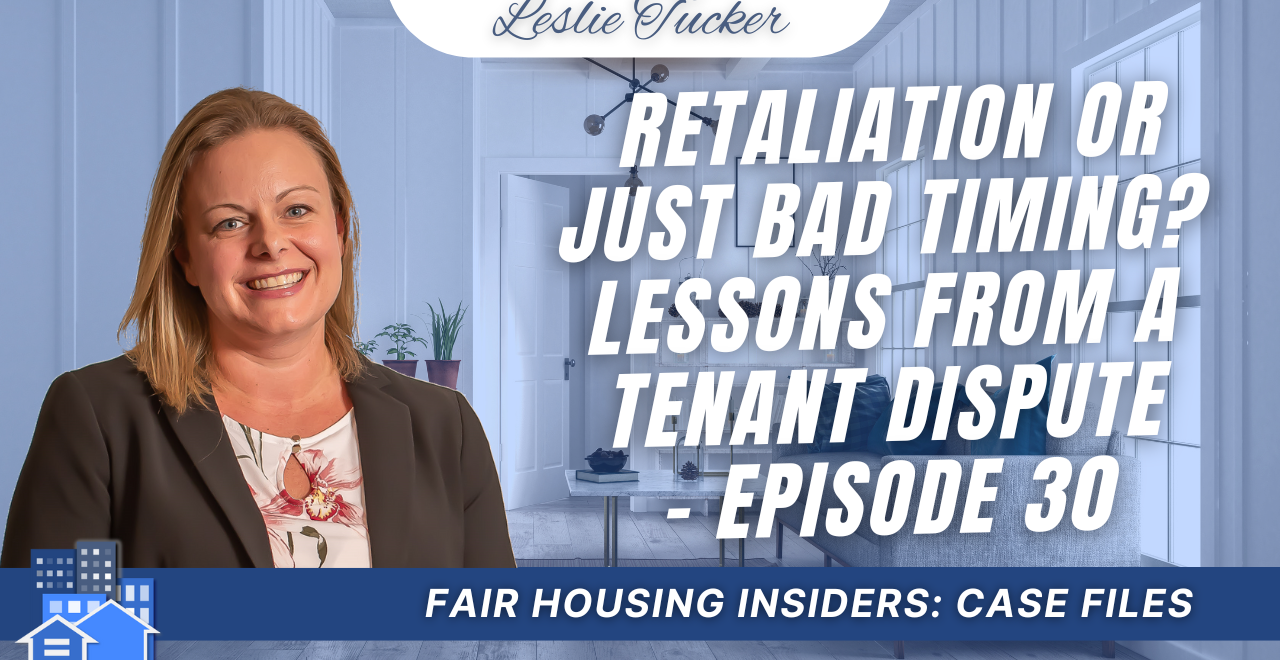In the property management industry, understanding and adhering to fair housing laws is paramount. A recent case involving United States v. Dana Christian and Yellowstone Apartments LLC underscores the importance of understanding retaliation claims under the Fair Housing Act and provides key lessons for property managers and owners.
Case Overview
This case revolves around allegations of retaliation. The Department of Justice (DOJ) filed a lawsuit against a landlord and apartment owner, claiming they unlawfully retaliated against a tenant after she objected to inappropriate behavior towards her adult daughter, who was visiting the tenant from another country. She alleges that the landlord made unwelcome advances toward her adult daughter, including personal comments and unwelcome invitations. When the tenant addressed the behavior directly via a text message, the landlord’s demeanor shifted markedly, leading to claims of retaliatory actions.
Alleged Retaliatory Actions
After the tenant’s text message regarding the alleged inappropriate behavior, the landlord accused her of minor lease violations, such as planting flowers and moving his motorcycle without permission. The tenant alleges that these incidents had occurred prior to the harassment complaint but were only mentioned after the tenant objected. The landlord also issued multiple termination notices and allegedly engaged in aggressive communications. These actions ultimately led the tenant to move out to avoid eviction, while her daughter returned to her home country prematurely.
Legal Outcomes
The tenant filed a complaint with the U.S. Department of Housing and Urban Development (HUD), which found reasonable cause to believe retaliation had occurred. The case was settled, with the landlord agreeing to pay $25,000 to the tenant, implement training and policy changes, and cease further contact with the tenant and her daughter.
Lessons for Property Managers
This case offers several critical lessons:
- Understand Retaliation: Retaliation claims often hinge on timing. In this case, the alleged lease violations predated the complaint, yet actions were only taken after the tenant’s objection. Such timing can create a presumption of retaliation, even if that was not the intention.
- Maintain Professionalism: Whether or not an internal complaint or comment is deemed valid, responses must remain professional and measured. Inappropriate or emotional reactions can lead to significant legal consequences.
- Recognize Perception: Property owners and managers must consider how their actions might be perceived. Even justified lease violation notices can appear retaliatory if issued soon after a tenant’s complaint.
- Ensure Training and Policies: Staff should be trained to handle complaints professionally, and policies should be clear and consistently enforced to mitigate risks.
Final Thoughts
Cases like this highlight the serious consequences of perceived retaliation. Property managers and owners must stay informed, ensure comprehensive training, and adopt policies that prioritize fairness and respect. By doing so, they protect both their residents and their organizations from legal and reputational harm.
You Might Also Like:
- Update on the Accessible Parking Case You’ve Been Following – Episode 49
- When Eviction Becomes Retaliation – Episode 48
- Case Files: The Price of Parking Discrimination – Episode 47
- Case Files: ESA Denied After Online Provider Verification—What Went Wrong? – Episode 46
- Case Files: When Mold, Disability, and Retaliation Collide – Episode 45

